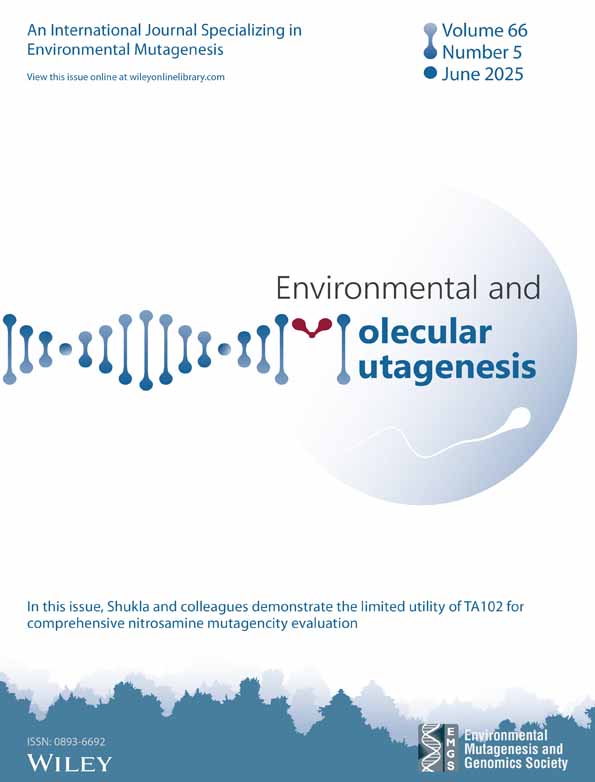Antimutagenic activity of spearmint
Abstract
The antimutagenic activity of spearmint (Mentha spicata), a popular food flavoring agent, was studied in the Salmonella assay. Spearmint leaves were brewed in hot water for 5 min at concentrations up to 5% (w/v), and the water extracts were tested against the direct-acting mutagens 4-nitro-1,2-phenylenediamine (NPD) and 2-hydroxyamino-3-methyl-3H-imidazo[4,5-f]quinoline (N-OH-IQ) using Salmonella typhimurium strain TA98. Nontoxic concentrations of spearmint extract inhibited the mutagenic activity of N-OH-IQ in a concentration-dependent fashion, but had no effect against NPD. These experiments by design focused on the water extract consumed commonly as an herbal tea, but chloroform and methanol extracts of spearmint also possessed antimutagenic activity against N-OH-IQ. Water extract of spearmint inhibited the mutagenic activity of the parent compound, 2-amino-3-methyl-3H-imidazo[4,5-f]quinoline (IQ), in the presence of rat liver S9; however, the concentration for 50% inhibition (IC50) against IQ was approximately 10-fold higher than in assays with N-OH-IQ minus S9. At concentrations similar to those used in the Salmonella assays, spearmint extract inhibited two of the major enzymes that play a role in the metabolic activation of IQ, namely, cytochromes P4501A1 and 1A2, based on ethoxyresorufin O-deethylase and methoxyresorufin O-demethylase assays in vitro. In vivo, rats were given spearmint water extract (2%; w/v) as the sole source of drinking fluid before, during, and after 2-week treatment with IQ; colonic aberrant crypt foci were inhibited significantly at 8 weeks (P < 0.05, compared with rats given IQ alone). Collectively, these findings suggest that spearmint tea protects against IQ and possibly other heterocyclic amines through inhibition of carcinogen activation and via direct effects on the activated metabolite(s). Environ. Mol. Mutagen., 2004. © 2004 Wiley-Liss, Inc.




